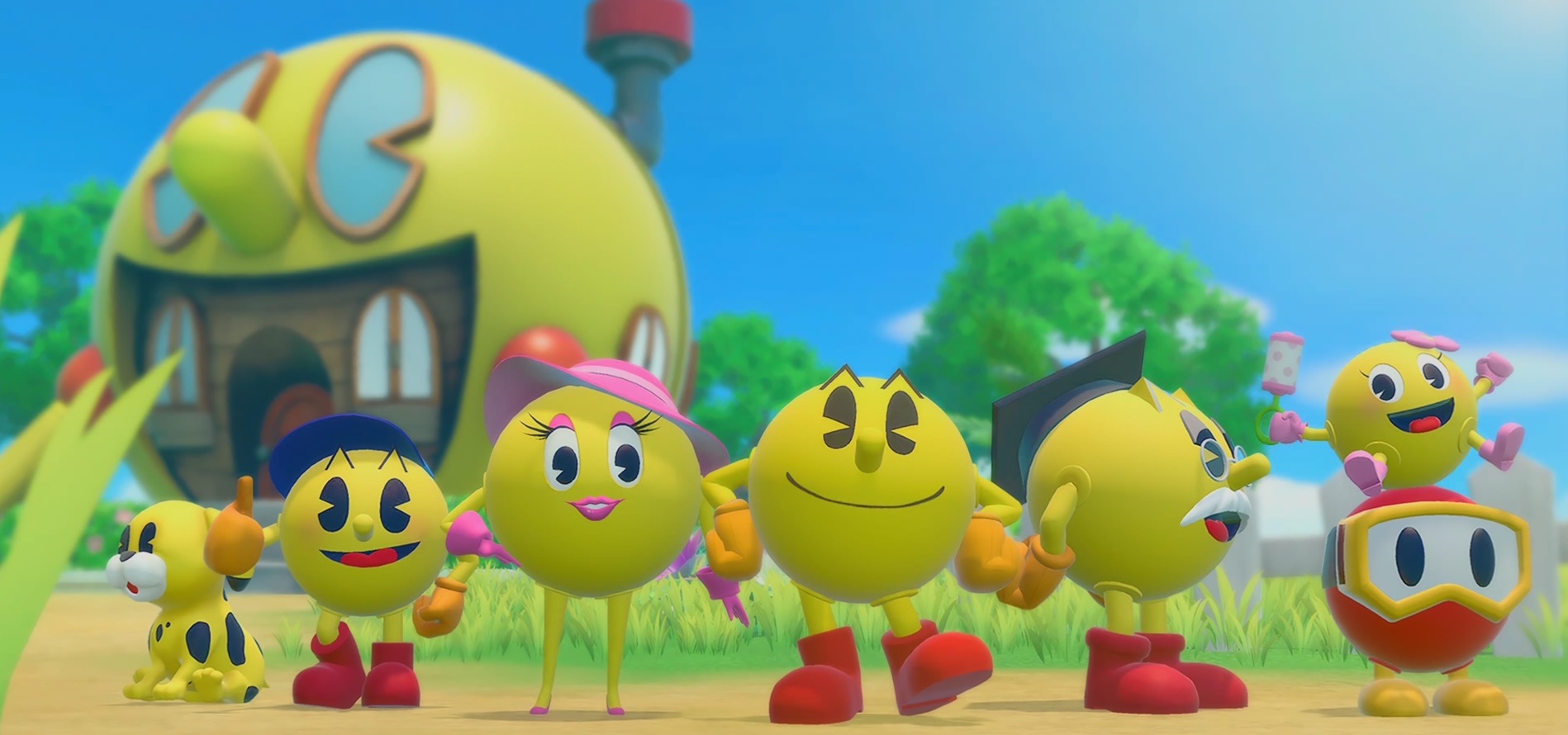The return of a debatable classic with caveats
Pac-Man World isn’t what I’d call a polarizing game. If you’ve ever asked someone if they had any memories of the 1999 original, usually you’re greeted with some form of “it’s one of my favorite platformers!” or “what are you even talking about, get away from me.” Pac-Man World Re-Pac is likely going to have the same impact.
But for those of you who do dive in, there’s a fun little mascot platformer here.

Pac-Man World Re-Pac (PC, PS4, PS5 [reviewed], Nintendo Switch, Xbox One, Xbox Series X)
Developer: Now Production
Publisher: Bandai Namco
Released: August 26, 2022
MSRP: $29.99
Pac-Man World Re-Pac‘s premise is as straightforward as its platforming. A villain has captured Pac-Man’s family (his wife is Pac-Mom, because, you know), and it’s up to you to travel through themed worlds to save them. One is modeled after pirates, another is a set of ruins, one is in space — you get the picture. It’s a very 1999 game, including the Crash Bandicoot hub world roaming to go from level to level. The upgrade to 60 FPS (on everything but Switch) and enhanced visuals don’t really alter that foundation, though there are some quality of life enhancements.
Two of the bigger, yet subtle ones, are the lack of a requirement to save all of Pac-Man’s family individually to finish the game, as well as the addition of an easy mode. The latter can pop on as an optional toggle mid-level too, which will be useful for folks who can’t beat a specific sequence. It’s a very laid-back game and this optional addition suits it. The most obvious change is a new coat of paint, and smoothing over the vast majority of 1999 clunk.
As I mentioned earlier, the way you play Pac-Man World Re-Pac is straightforward. Each level generally has P-A-C-M-A-N letters to collect, fruits or icons that serve as keys to required or secret/bonus areas, and a statue at the end to smash that signifies the end. It’s a collection of mascot platformer tropes, but none of it feels overwrought. There’s just enough there to make level discovery and exploration interesting, without throwing too much pointless nonsense at the player. Unlocking extra classic-feeling “maze” levels is one of the best examples of this philosophy, as they’re fun to do in their own right, but you won’t feel like you’re missing out if you skip some.
To actually accomplish all that, Pac-Man has a few abilities: an amalgamation of several other mascots of that era. Pac-Man can do the classic “hover in mid-air” platforming move by kicking his feet, and he can Sonic spin dash by holding down a button. There’s a butt bounce (which also does double duty as a way to jump higher), and power-ups like Metal Pac-Man (which makes you impervious to enemies and lets you sink underwater), reminiscent of that era of platforming. Minigames and a slot machine bonus (at the end of each level) are thrown in for good measure.
On paper it doesn’t sound like Pac-Man’s foray into 3D platforming is all that unique, but the way these abilities weave into each other from a gameplay perspective is interesting. Levels often take advantage of successive butt bounces, and work the apex of those jumps into those designs. Dashing will make Pac-Man zoom across the screen after a wind-up — but it can also be used to power platforms and contraptions like a hamster in a wheel.
A lot of platforming sections use all of these abilities to their fullest, especially higher-octane levels that have the threat of damage accompanying all these maneuvers. Quickly deciding between a jump or a butt bounce while lasers fire at your head is fun, especially once you start to figure out the rhythm and cadence of everything Pac-Man has at his disposal.

It doesn’t take that long for Pac-Man World to start throwing those things at you either. Most “first stages” in each zone are introductory, but after that, a lot of the tutorials are cut and you’re left to your own devices. While there are a lot of universal truths that serve as an interconnected web throughout the game (like water and trap doors), zones generally have differentiating fresh concepts.
One of the biggest sins of Pac-Man World‘s design, which wasn’t rectified with Re-Pac, is the high amount of low-impact enemies. While enemy identity is a huge part of many mascot platformers, I’d struggle to recall most of Pac-Man World‘s rogue’s gallery by memory. Their attack formations and overall presence aren’t anything special either, which takes you out of the moment if you were looking for a more action-oriented vibe. With a butt bounce, dash, and throwing pellets (as well as a charged super pellet throw), there’s plenty of ways to take enemies down, but you won’t need all of them; you can just sidestep most of their shenanigans.
With the lower-key stakes (coupled with a lower-key $30 price point), and a firm consistency with level design, Pac-Man World Re-Pac still kept me interested throughout. I’m not sure Pac-Man World Re-Pac is going to lure in many more fans, but the ones it already had should be happy with this new packaging. It’s a workhorse of a mascot platformer: one that was understandably passed by, but is still worth talking about.
[This review is based on a retail build of the game provided by the publisher.]









